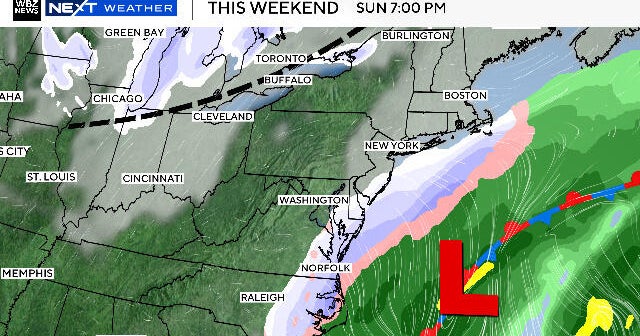Watch Out! Frozen Iguanas Fall Out Of Trees
MIAMI (CBSMiami) – As temperatures fell across South Florida this [ast weekend, so did the iguanas.
The cold front that dropped temperatures into the 30s and 40s led to cold-stunned iguanas dropping out of trees.
The invasive species can't handle cold temperatures very well. In general, iguanas begin to get sluggish or lethargic once the temperature drops below 50 degrees Fahrenheit.
Once the temperature drops below 45 degrees Fahrenheit the iguanas go into a dormant or cold-stunned state. They appear to be dead, but they are not. They remain breathing with critical body functions still operating.
But not all iguanas respond the same.
According to Zoo Miami Communications Director Ron Magill, it depends on the size of the iguana. He says the larger the iguana, the colder it can tolerate for longer periods.
Adult male iguanas can reach 5 feet in length, and weigh up to 20 pounds so you don't want one of these guys, sleeping in a tree, to fall on your head or your car.
Iguanas go into this cold-stunned state as a way of protecting itself until the temperature warms back up above 50 degrees.
The danger for the iguana comes when temperatures remain in the 40s for periods over eight hours. The invasive species is then at risk of death, especially the smaller ones.
Many iguanas in South Florida have adapted to going deep into burrows where they stay insulated from the cold. They tend to also live close to large bodies of water, which tend to be warmer than the air temperatures, which help them survive short cold snaps.
If you encounter cold-stunned wild iguanas, the Florida Fish and Wildlife Conservation Commission has some important reminders:
➡️ Don't bring wild green iguanas into your home or your car – they can recover quickly in warm temps and use their long tails and sharp teeth & claws when defensive. Also keep in mind that people cannot be in possession of live green iguanas without a permit as they are a Prohibited species in Florida.
➡️ Don't relocate or release green iguanas (or any nonnative species) – it is illegal and can harm native wildlife.
➡️ Homeowners can humanely kill green iguanas. Iguanas, like all nonnative, invasive species, are not protected in Florida except by anti-cruelty law. If you are not able to safely remove iguanas from your property using humane methods, please seek assistance from a professional wildlife trapper.







